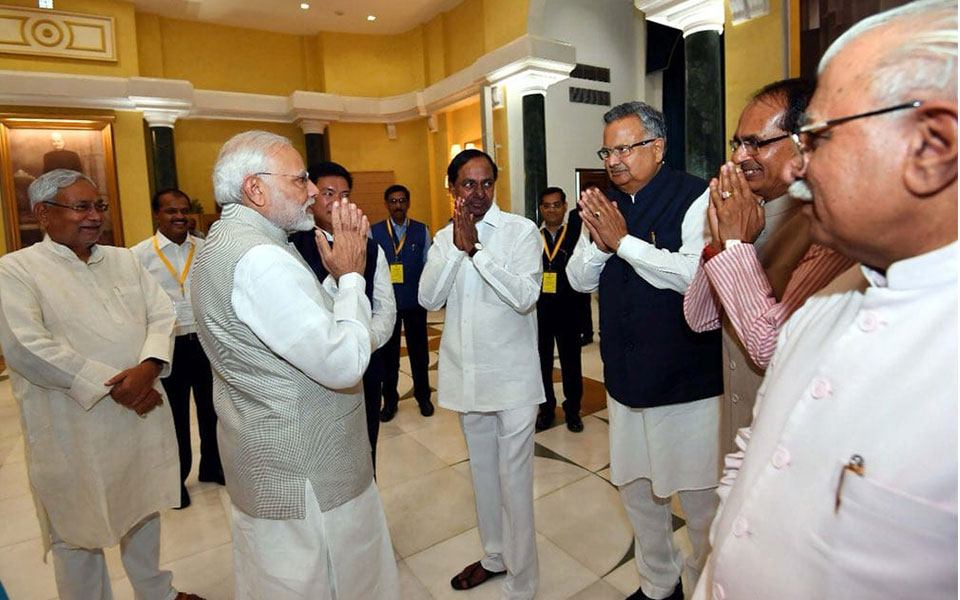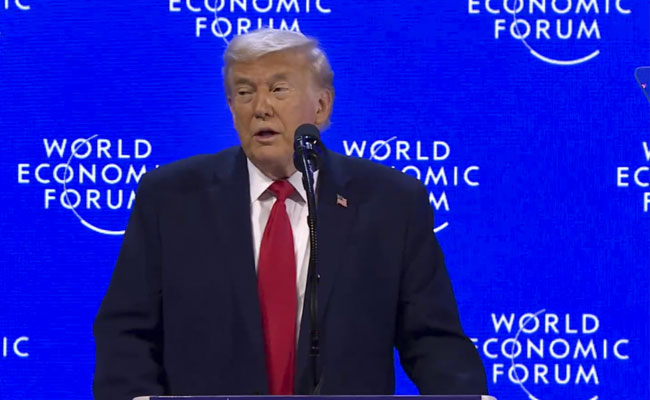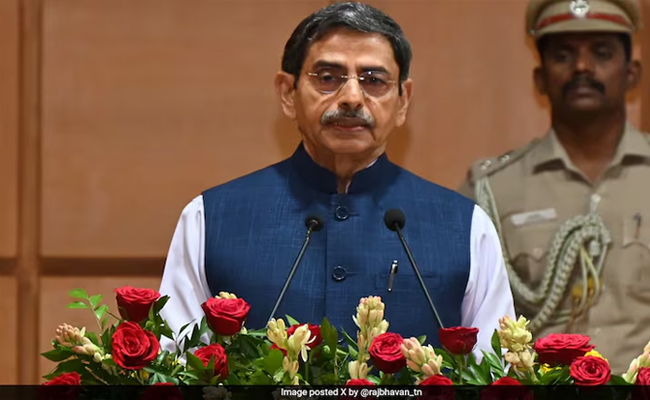New Delhi, June 17: Prime Minister Narendra Modi on Sunday assured states like Andhra Pradesh and Bihar, which have been demanding special status category, that the Centre is committed in "letter and spirit" to adhere to statutory provisions in place at the time of the bifurcation of states.
Briefing reporters here following the fourth meeting of the Governing Council of the NITI Aayog, its Vice Chairman Rajiv Kumar said that the Prime Minister, who addressed the Chief Ministers, clarified the Central government's position on the claims of some states for special status.
His assurance came after Andhra Pradesh Chief Minister Chandrababu Naidu raised his long-pending demand of special category status which was supported by Bihar Chief Minister Nitish Kumar.
"Some states did raise the issue of special status. The discussions were more focused on the statutory provisions that were in place at the time of the bifurcation of states and the Prime Minister said that the central government is committed in letter and spirit to adhere to those provisions," Rajiv Kumar said.
Earlier, Naidu raised issues related to bifurcation, agenda and other pressing needs of the state.
"Received overwhelming support from Chief Ministers, officials and dignitaries at the 4th Governing Council meeting at @NITIAayog, where we discussed issues relating to the AP Reorganization Act, 2014," Naidu said in a tweet.
During his 20-minute speech, he also demanded the special category status for Andhra Pradesh.
Nitish Kumar also raised the demand for special status and supported Naidu's move.
On the issue of the minimum support price (MSP) for crops raised in Budget 2018-19 towards doubling farmers' incomes, the Vice Chairman described the MSP issue as "work-in progress".
"The details are being worked out and a bouquet of options will be offered to the states for them to meet the Prime Minister's promise of an increase of 1.5 times in the MSP," he said.
Rajiv Kumar said that the Prime Minister, who is also the Chairperson of the Niti Aayog - the think-tank that replaced the erstwhile Planning Commission - also directed that a committee be formed to look into farmers' issues.
It was also suggested at the discussions that states should also set up their own GDP targets which all add up to compose the national gross domestic product (GDP), he added.
Let the Truth be known. If you read VB and like VB, please be a VB Supporter and Help us deliver the Truth to one and all.
After rapper and singer Santy Sharma's reaction to Khushi Mukherjee's provocative photo/video posts on social media, people on different platforms are now having a heated debate. The comments made by Santy were soon spread across social media and opened the door for conversations surrounding the type of content that is being posted by public figures on social media.
In his view, digital platforms provide a way to express themselves through creativity and art; however, he feels it is important for celebrities/influencers with a large number of followers to be mindful of how their content may be perceived by others. According to him, people who possess a large following online have a level of responsibility regarding the actions they display via their social media and should be cognizant of what type of example they are setting for the youth.
Lastly, creating art should inspire creativity as well as allow users to use their voices to support necessary change in society; therefore, creativity and expression through digital platforms should produce positive social change while still being aware of culture and society's expectations.
At the time of writing, Santy Sharma was discussing how online behaviour has contributed to increased rates of rapes, which stimulated much debate and debate online. Supporters have advocated for improved online etiquette, while others feel he was insensitive in his comments and contradicts the need for sensitivity on these sensitive issues. The controversy has gone beyond social media and increased debate regarding gender-based issues, the ethics of media influence, and the necessity to address serious crimes with appropriate awareness and sensitivity.
Meanwhile, Santy Sharma has also announced his upcoming single titled “I Don’t Care,” which is scheduled to release on 10 March 2026. The track will be available on his official YouTube channel and other major music streaming platforms, creating anticipation among fans who are eager to hear his latest musical release.





